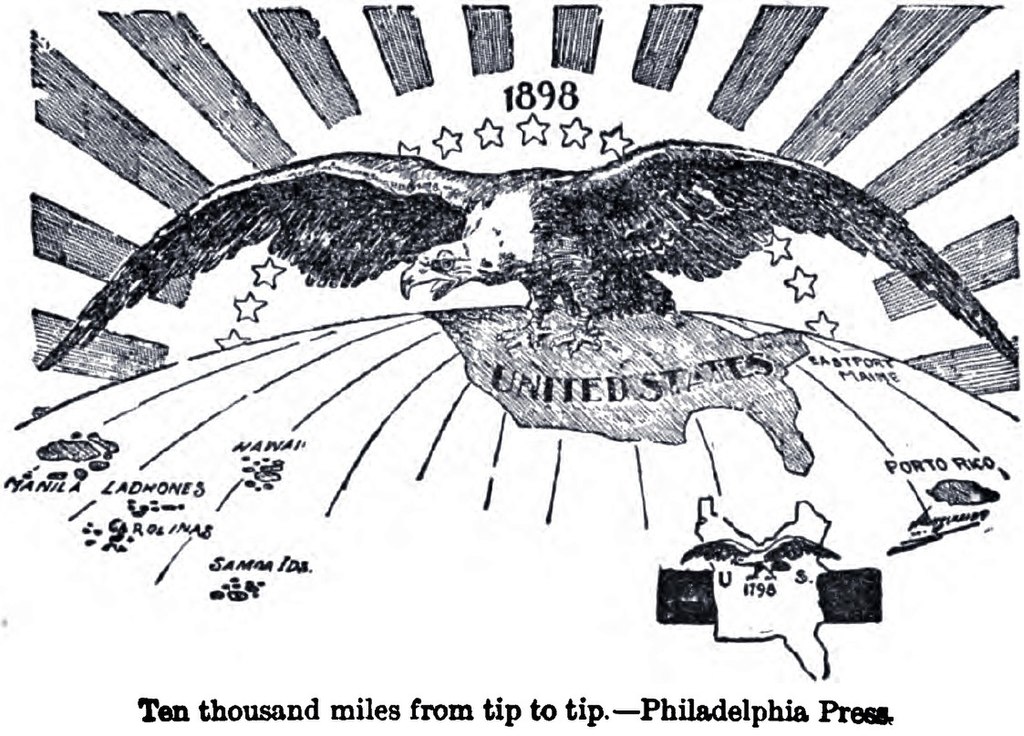Poilievre pledges to defund the English language arm of the CBC, promising that the move will bring substantial savings for taxpayers and eliminate a purveyor of publicly funded woke ideology. But what would a Canadian media landscape without the CBC look like? It’s difficult to visualize, because the national broadcaster has been around since 1936. One thing’s for sure: it would be completely hollowed out, and thoroughly Americanized.
You might think Canada’s media landscape is already depleted and Americanized – and you would be correct – but the current state of Canadian media’s deterioration and domination by U.S. business interests is a pale imitation of what will come if the CBC’s funding is axed.
Before I go on, I agree with every criticism of the CBC that you can come up with. Yes, it rolls out endless amounts of content centred on every conceivable ethnic and sexual minority, while rarely promoting Canada’s common identity and heritage. Yes, it produces increasingly lower quality content every year. A quick glance at the CBC homepage while writing this revealed the following headlines: “Larger scale lamps or a chandelier could anchor your room’s design“, “My relationship with my husband’s ex-wife makes me a better mother and person“, “This self-described incel has never had a conversation with a real woman“. These are the headlines the CBC is running with during an election campaign that has been accurately described as one of the most momentous in our history. I have no idea what the editors are thinking.
How is this the best that CBC can come up with, given its $1.4 billion in funding? Speaking of money, how could anyone have thought it was a good idea to award $18.4 million in bonuses, including $3.3 million to 45 executives, during a wave of layoffs?
All of the criticism that the CBC has received is valid. And all of it is solvable through reform. A reformed CBC could focus on what it does best – local news, radio, podcasts, and investigative reporting. It could shelve increasingly irrelevant services like The National (watched by very few) and its foreign bureau (in this day and age, Canadians can get news from other countries whenever we want from a wide variety of sources).
We can debate these ideas, and many more, for how this national institution should best provide Canadians with Canadian content. But there will be no debate once it is defunded. There would no longer be a single media outlet in this vast, sprawling country with a public mandate to promote our culture, tell our stories, and keep us up to date on what’s going on locally and nationally.
Defunding the CBC after the April 28th election would come at a time that of intense decline in Canadian media. According to a report by Public Policy Forum, 526 news outlets have closed since 2008 – the vast majority were community newspapers, and roughly half of closures took place in communities with 20,000 people or less. According to a report by the Canadian Centre For Policy Alternatives released a week ago, 2.5 million Canadians now live in a postal code with only one or no local news outlets. Outside of St. John’s, Newfoundland and Labrador lost 75% of its news sources in the last 16 years.
It’s not just small towns and remote regions. Here in B.C., the interior city of Kamloops has over 100,000 people and zero newspapers after Kamloops This Week printed its final edition on October 25th, 2023. Even in cities with one paper, that paper can be so hollowed out as to be rendered irrelevant. Last fall, CANADALAND released a podcast on how a dumpster company’s Facebook page became the top local news source in Regina:
“You can’t really call Regina a news desert. They still have a newspaper. But if you actually look under the hood you’ll discover that they stopped printing the newspaper in Regina. They stopped editing it in Regina. The editor lives somewhere else. And as far the CBC goes, well, that acronym is now synonymous with layoffs.
Everyone from the legacy media who purports to be telling people in Regina what is going on in their own community is doing so with less resources than ever before. These are zombie news organizations. That creates a news vacuum. A place for someone new to step in. And somebody did.
And that somebody peddles garbage. That’s not a value judgment of this new news source in Regina. It’s just the objective truth. They’re a garbage company called Just Bins. They provide dumpsters and news to the people of Regina. And they may be providing news to more people in Regina than anyone else.”

A large swathe of the newspapers in Canada that haven’t closed up shop are owned by U.S. business interests like Postmedia, which owns the National Post, the Financial Post, 32 papers in Alberta, three in Saskatchewan, 57 in Ontario, the Montreal Gazette in Quebec, 10 in New Brunswick, two in Prince Edward Island, 7 in Nova Scotia, and The Telegram in Newfoundland. Postmedia is itself majority owned by Chatham Asset management, an American hedge fund.
The Americanization of Canadian media continues steadily, most recently with Carpenter Media Group acquiring Black Press, which runs 94 newspapers in Canada – including many in B.C., and nearly every single paper on Vancouver Island.
The CBC stands alone as the one media provider that is uniquely impervious to being closed due to financial pressure or bought up by an American hedge fund. Defunding the CBC would mean the total surrender of Canada’s media to the twin threats of closures and American buyouts. Our public broadcaster to be reformed, not killed for cheap political points 11 years before its 100th birthday.
All content on this website is copyrighted, and cannot be republished or reproduced without permission.
Share this article!





Good article, weaving in and out of the whys and why-nots of a publicly funded corporation employing a lot of people who collectively burn through $1.4 BILLION Canadian taxpayer dollars annually.
A mayor point not mentioned is that this redundant agency attracts only 4% of those, who get their information from a media source. That’s abysmally low and in no way serves as a business model in any sense of the word. I get more Canadian news (I can rely on) watching Sky News out of Australia than I ever could watching or listening to anything CBC!
One point four Billion taxpayer dollars is a whole lot of money being blown for the pleasure of a very tiny portion of the population looking in on or listening to a “stand alone” operation “impervious to being closed due to financial pressures ” and may I add “redundancy”
The CBC, ceased being a news agency a long time ago! At best its an entertainment vehicle (one I’ll surmise very few under 50 care about) at worst it serves best as the biased media arm of the Liberal Party of Canada. Dig up the Peter Mansbridge interview he did with Steven Harper a few years ago for evidence of obvious Liberal bias.
I recently talked to as many young folks as I could during lunch time at the University of Lethbridge. I asked what the CBC meant to them. Of the 23 I spoke to, 15 had no idea what the acronym CBC meant. Unbelievable!
The 1.4 Billion could be better spend anchoring Canada’s young folks desirous of buying their first home.
CBC is Canadian Pravda. A democratic government should not control media. Also, the government should not buy Coca Cola for everyone, because not everybody likes Coke. It is not fair.
The big reason CBC has to go is that government funded operations crowd out the field. Other competitors do not want to go up against the government for a number of good reasons. If the CBC would go away, you would see a flourishing of independent sources, from a variety of viewpoints. All we get now is bilge water and bonmots cycled down from the Lawrentian elite. Look at the uncritical way we are served up “Mark Carney has a great resume” or “ elbows up”. Mike Myers comes back from the US and flashes his Tim Hortons mug. The CBC thinks the public consists of sheep. That is why Carney says so many foolish things. He doesn’t think it is necessary to try, because he is anointed and the press will deliver him the prize.